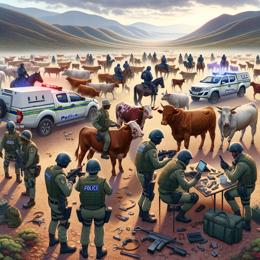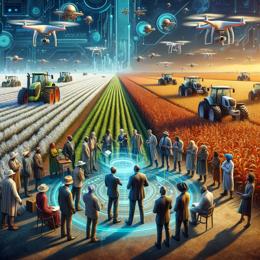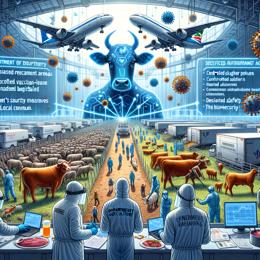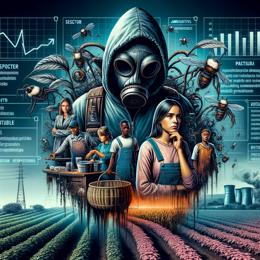Image created by AI
European Farmers Challenge Neoliberalism Amidst Agricultural Crisis
The agricultural landscape in Europe is at a crossroads, with farmers uniting across the continent to protest against neoliberal policies that have undermined their livelihoods. On February 26, as the World Trade Organization (WTO) gears up for its 13th ministerial conference in Abu Dhabi, members of the European Coordination Via Campesina (ECVC) are rallying to bring attention to the plight that they say has resulted from the WTO's decades-long promotion of neoliberal agricultural policies.
This crisis is characterized by unsustainable production costs, stagnant or falling prices for produce, and a stark increase in farmers' levels of debt. Attempts by farmers to adapt have included scaling up production and turning towards organic farming and short distribution channels—efforts often stymied by market pressures, including the COVID-19 pandemic's impact.
The EU's Farm to Fork Strategy, part of the European Green Deal, promises to move towards a more sustainable agricultural model. Yet, this ambition clashes with the existing paradigm that pits all the world's farmers in cutthroat international competition. The farmers argue that ecological production, beneficial for health and the environment, cannot flourish without strong market protections.
In response, divisions within the agricultural community have been exacerbated. While large farming organizations aim to maintain the neoliberal course by rebuking environmental policies, the ECVC emphasizes the urgency of combatting the environmental and climate crises through a paradigm shift towards food sovereignty—a concept that promotes local food production and supports small-scale producers.
Notably troubling is the proposed free trade agreement with the Mercosur nations, which threatens to further destabilize European livestock farming through increased meat imports. It poses the risk of introducing produce that doesn't meet the stringent EU standards on food safety and sustainability.
Simultaneously, some EU countries are countering the crisis by sidelining environmental initiatives, such as France pausing its Ecophyto pesticide reduction plan and Germany backpedalling on legislation to phase out certain farming subsidies. This approach is seen as myopic by the protesting farmers, who assert it offers no permanent solutions to their shrinking incomes.
The farming protests emerge amidst the backdrop of the global rise of far-right politics, with movements that often misdirect societal frustrations towards vulnerable groups instead of advocating for equitable income distribution. In the Netherlands, the right-wing Farmer-Citizen Movement party has seized on this discontent, leveraging it for electoral gain.
Facing a European Parliament election in June, the ECVC fears the EU's disjointed response to the farmers' protest may further empower such right-wing movements. The unions within the ECVC stand firm, contending that market regulation and food sovereignty are keys to remedying the agricultural turmoil in Europe, aligning their struggle with that of workers' unions and the climate movement to demand fair treatment and coherent global climate policies.










